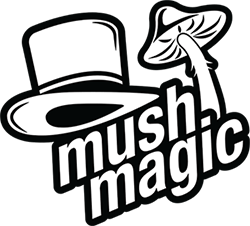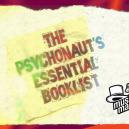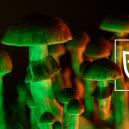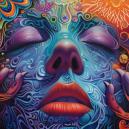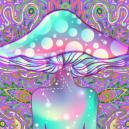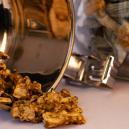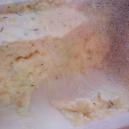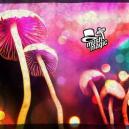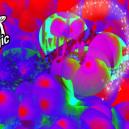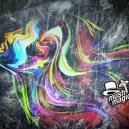Increased Support For Trip Treatments
Published :
October 10th, 2017
Categories :
Default

A number of psychedelic substances are proving to be effective treatments for anxiety, depression, PTSD and end of life crises. A recent survey by YouGov shows that there is a link between education level and acceptance of treatment and research into these drugs.
Psychedelics, once painted as villains by the hysterical media, are making a powerful impression as effective treatments for debilitating mental conditions. In a recent survey conducted by YouGov (a community of four million people whose views are analysed and presented as research data), education level was shown to be a contributing factor in the decision making process regarding research and medical use of psychedelics.
Psilocybin, the active ingredient in magic mushrooms has been shown to display profound healing effects for those suffering from terminal illness. 80% of patients in a recent survey reported an end of life, transformative experience. The single treatment banished their fear of death and calmed their eschatological anxiety.
When used to treat PTSD, MDMA has a substantial effect after three treatments. 56% of patients reported a reduction in anxiety and depression and 69% no longer met the clinical definition for PTSD.
Ketamine is on the Essential Drugs List of the World Health Organization and is also abused as the party drug Special K. When used clinically, ketamine has been shown to reduce severe anxiety and depression within six hours for those resistant to anti-depressants.
EDUCATION LEVEL AND PSYCHEDELICS
Presuming proposed treatments were safe and legal, 73% of those with postgraduate degrees were open to clinical treatment involving psilocybin, ketamine or MDMA. In the same instance, only 52% of those with a high school diploma were open to suggestions of the same treatment. Comparably, from the same sample group, 69% of people with postgraduate degrees would support research into these presently illegal substances. Whereas only 46% of people with high school diplomas would support the same research into psilocybin, ketamine or MDMA.
Over 50% of the population of the United States supports therapeutic use and clinical research of psilocybin, ketamine and MDMA. The YouGov survey displays that, in general, education level plays a significant role in the decision making process concerning personal treatment and research of psychedelics.
